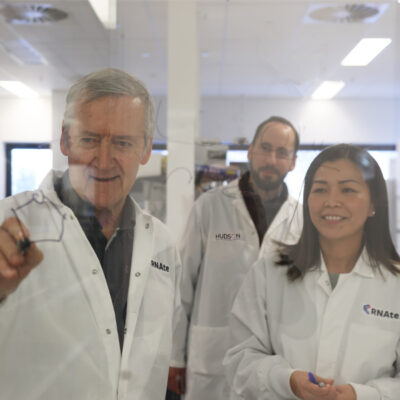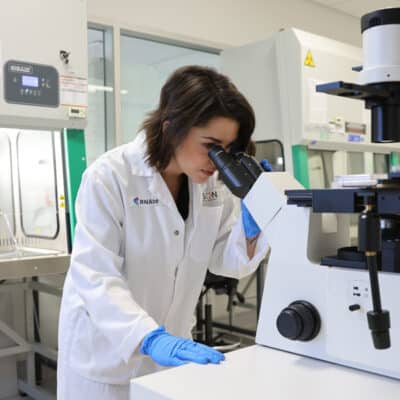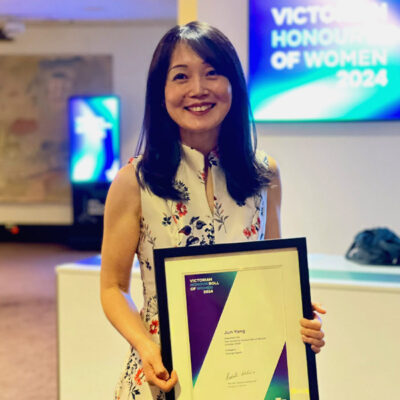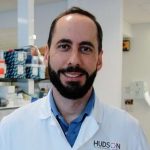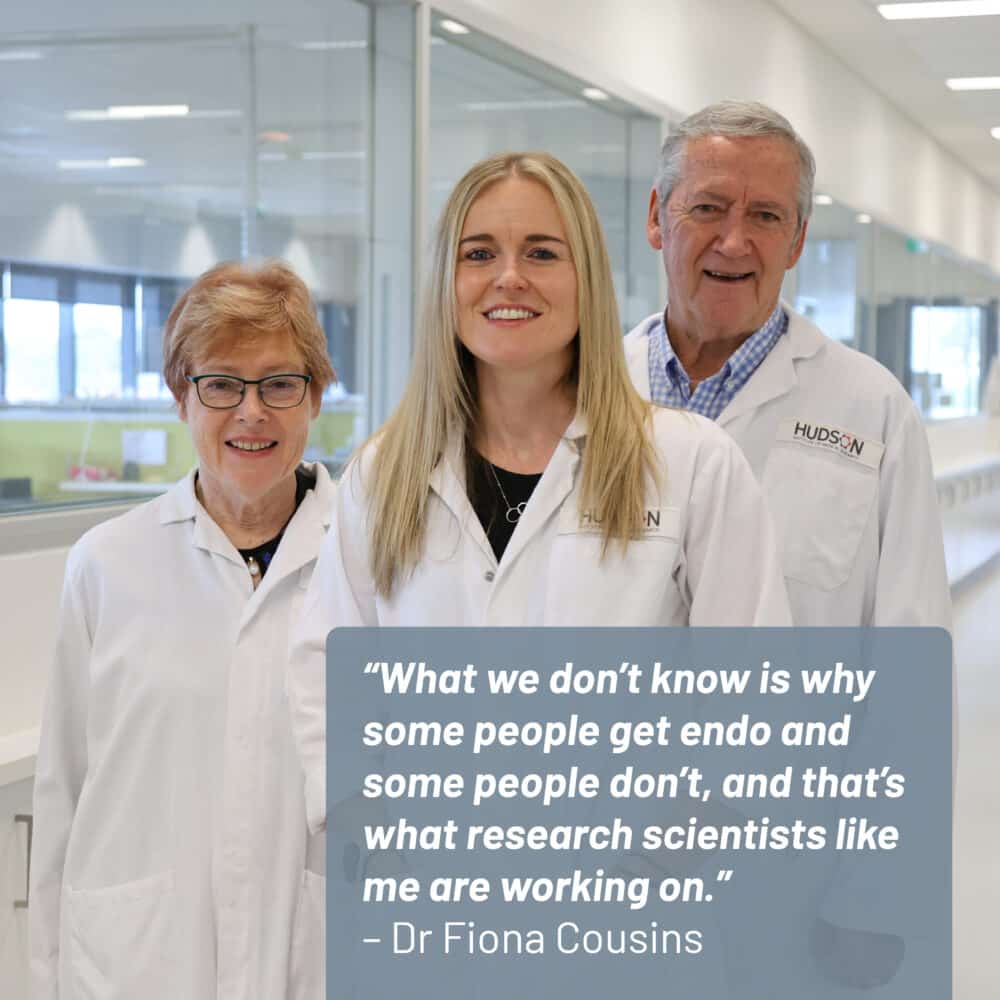Sepsis nearly took Dr Michael Gantier’s life. Now he studies it.
By Hudson Institute communications. Reviewed by Associate Professor Michael Gantier
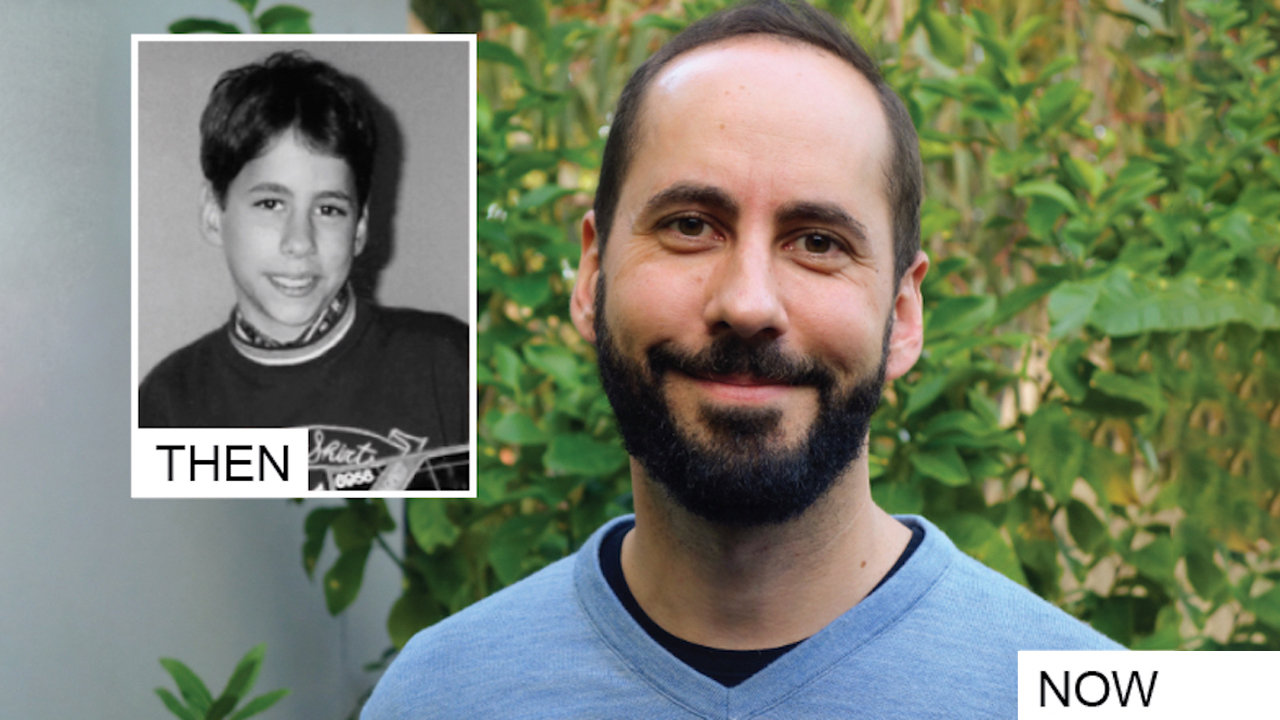
A brush with death aged 11 motivated a young Michael Gantier to pursue a career in science. This is his story …
My lab is working on a potential treatment for life-threatening COVID-19 symptoms, which includes acute respiratory distress syndrome and sepsis. These are reactions caused by excessive inflammation – part of the body’s own natural immune response to infection with this virus.
What many people don’t know about me is that when I was an 11-year-old living in France, I suffered sepsis after surgery to remove my appendix. I was in hospital for a week after the surgery and when my situation failed to improve, I was operated on again. Doctors found a massive infection in my peritoneal cavity. If they had operated even a few hours later, I wouldn’t be here to tell this story.
This was a turning point for me. I nearly died. I was old enough to understand what happened and it was very difficult to comprehend. It definitely motivated me to work in science to try to understand more about sepsis.
Surviving a near-death experience makes you realise what is important and that you shouldn’t take life for granted. COVID-19 is driving home the fact to so many that we are not immortal. And unfortunately, there are not always treatments available to help us when we get sick.
I was fortunate. I was treated for sepsis and I survived. Hundreds of thousands of people with COVID-19 haven’t made it.
There are few proven treatments and no vaccine yet for COVID-19.
Medical research is essential to solve all the pieces of the puzzle when it comes to this virus – this is true of many other diseases and conditions. Funding is needed to enable scientists to identify the problem, and then make the drugs to solve it.
I hope you will consider a donation to Hudson Institute to support all our research into COVID-19. This way, our scientists can continue to be part of the solution to this global health pandemic.
READ ABOUT latest developments in the Herald Sun (paywall)
READ ABOUT Michael’s work – US FDA approval sought for clinical trial – potential COVID-19 treatment
About Hudson Institute
Hudson Institute’ s research programs deliver in three areas of medical need – inflammation, cancer, women’s and newborn health. More
Hudson News
Get the inside view on discoveries and patient stories
“Thank you Hudson Institute researchers. Your work brings such hope to all women with ovarian cancer knowing that potentially women in the future won't have to go through what we have!”

